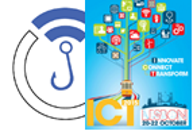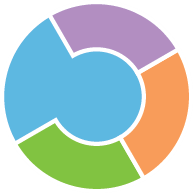| If the message is not displayed correctly, please view it under this link. |

November 2015
|
|
|||||||||||||||||||||||||||||||||

ICT15: the digital transformation will be locally led
On 21 October, the FARNET Support Unit (FSU) organised a capacity building event at the “Innovate, Connect, Transform” ICT15 event
in Lisbon, Portugal. This popular three-day event attracted almost 6000
participants, and the FSU, in the presence of two related Axis 4
projects, demonstrated how FLAGs and CLLD are supporting the digital transformation of Europe’s fisheries and coastal communities. The event raised awareness of how CLLD can help local communities and fisheries professionals to embrace and take ownership of new information and communication technologies (ICTs) to strengthen their position in the market and dynamise supply chains, for example, by using social media or online sales platforms. Different examples were presented, showing how ICTs can have a much greater impact in the small-scale fisheries sector, helping to increase traceability, simplify the collection of catch data, and open up new communication channels, providing opportunities to transfer knowledge and tell the local story. The presence of Axis 4 projects such as Drecklyfish and Télécapêche, but also guest projects such as the Horizon2020 Bluebridge project, reinforced the message that digital empowerment through local development can lead to more inclusive, resilient and sustainable fisheries communities. Are you involved in a digital project that impacts positively on your local community? Let us know by sending details to info@farnet.eu. 


|
|
||||||||||||||||||||||||||||||||
|
||||||||||||||||||||||||
|
||||||||||||||||||||||||
 |
|
Editor : European Commission,
Directorate-General
for Maritime Affairs and Fisheries, Director-General. Disclaimer : Whilst the Directorate-General for Maritime Affairs and Fisheries is responsible for the overall production of this newsletter, it is not responsible for the accuracy, content or views expressed within particular articles. The European Commission has not, save where otherwise stated, adopted or in any way approved any view appearing in this publication and statements should not be relied upon as statements of the Commission’s or the Directorate-General for Maritime Affairs and Fisheries’ views. The European Commission does not guarantee the accuracy of the data included in this publication, nor does the European Commission or any person acting on its behalf accept responsibility for any use made thereof |
 FARNET Seminar: implementing CLLD across the ESI Funds
FARNET Seminar: implementing CLLD across the ESI Funds













